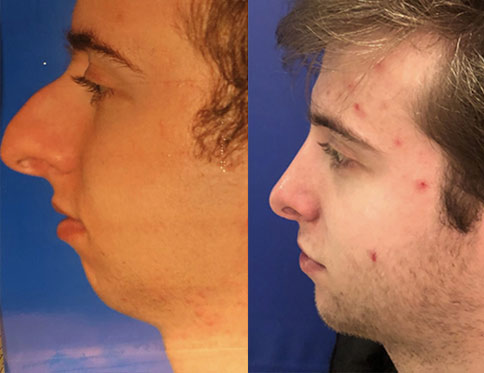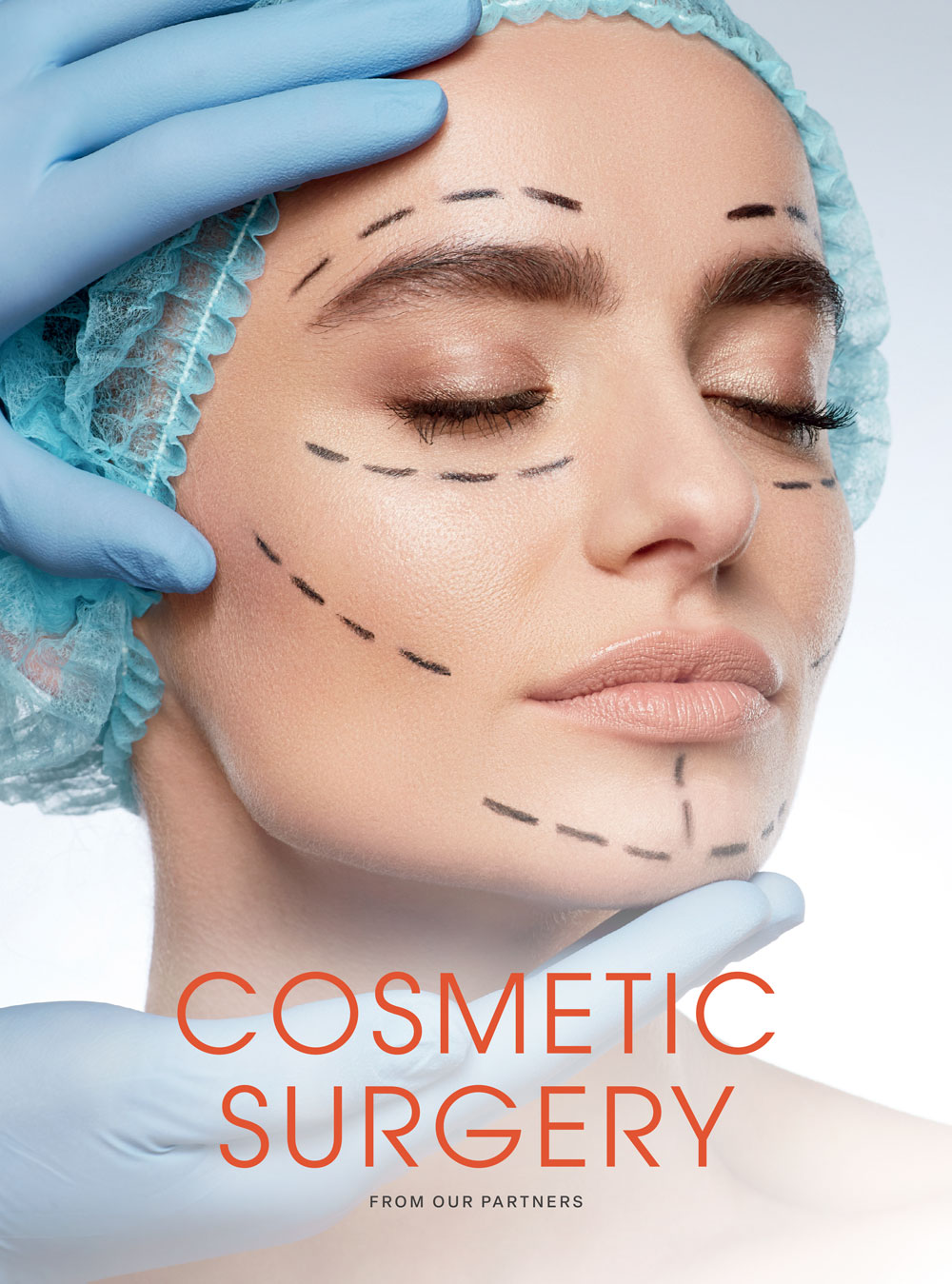Facelift Rancho Cucamonga: Reverse the Clock with Advanced Anti-Aging Solutions
Facelift Rancho Cucamonga: Reverse the Clock with Advanced Anti-Aging Solutions
Blog Article
Investigating the Mental and Social Elements That Drive People to Consider Plastic Surgery as a Way of Enhancement
The choice to go after cosmetic surgical procedure commonly extends beyond mere visual appeals, linking with mental and social characteristics that merit thorough evaluation. Elements such as self-worth, pervasive social beauty requirements, and the pervasive impact of social media merge to form specific inspirations for medical improvement.
The Duty of Self-worth
Self-worth considerably affects a person's decision to go after plastic surgery. Individuals with reduced self-confidence often view themselves in a negative light, resulting in sensations of insufficiency concerning their physical look. This adverse self-perception can drive them to seek medical interventions as a method of improving their self-image. The wish for enhancement in one's appearance is often linked to an idea that such modifications will certainly raise their total self-regard and confidence.

Ultimately, the role of self-worth in the decision-making process pertaining to plastic surgery highlights the complex interplay in between body photo, individual contentment, and psychological health. Comprehending this partnership is vital for healthcare specialists to guarantee that clients are making educated choices rooted in reasonable assumptions and emotional health.
Societal Elegance Standards
Influenced by prevalent media portrayals and social narratives, social beauty criteria play an essential function in forming individuals' assumptions of their very own bodies. These criteria are usually identified by an idyllic kind of appeal that highlights qualities such as youthful vigor, balance, and slimness. As these perfects are bolstered via different networks, including marketing, tv, and film, people frequently internalize these messages, leading to discontentment with their all-natural look.
The ramifications of these societal standards expand beyond visual preferences; they can influence self-confidence, mental health, and interpersonal relationships. People who view themselves as dropping short of these requirements might experience sensations of insufficiency, triggering a wish for plastic surgery as a means of attaining social approval. This quest is commonly sustained by the belief that conforming to these perfects will certainly enhance not only physical appearance but also social standing and personal gratification.

Impact of Social Network
The effect of societal charm standards is further enhanced by the surge of social media platforms, where curated pictures and idealized representations of beauty are common. Individuals are frequently exposed to filtered and edited photographs, which typically illustrate unattainable physical characteristics. This exposure grows a culture of contrast, leading people to evaluate their very own appearance against these frequently impractical benchmarks.
Social media site influencers and celebrities often promote cosmetic procedures, normalizing the notion that surgical improvements are a viable methods for accomplishing social ideals (plastic surgery rancho cucamonga). The presence of these improvements can produce an understanding that undertaking plastic surgery is a basic technique, thereby affecting individuals to take into consideration similar interventions as a path to boosted self-esteem and social approval
Furthermore, the interactive nature of social networks enables prompt responses through likes and comments, better reinforcing the need to comply with popular charm requirements. Such communications can exacerbate feelings of insufficiency and drive people towards plastic surgery as a way of obtaining validation. Eventually, social media plays a crucial function in forming perceptions of elegance, which dramatically impacts the decision-making processes surrounding cosmetic surgery.

Social Perspectives on Appearance
Throughout different cultures, understandings of appearance are deeply rooted in historical, social, and economic contexts, forming individuals' sights on appeal and charm. In lots of societies, appearance acts as a substantial pen of identification, affecting social status, professional chances, and personal partnerships. For instance, in some societies, light skin is often related to wealth and privilege, while others might glorify darker skin tones as icons of toughness and authenticity.
Additionally, conventional appeal standards are often perpetuated through social stories, media depictions, and family members influences, causing differing perfects throughout different areas (plastic surgery rancho cucamonga). In Western societies, the focus on youth and physical health and fitness usually drives people toward cosmetic enhancement, while in specific Eastern societies, even more subtle adjustments click to investigate aligned with traditional looks may be liked
Globalization and the proliferation of digital media have actually additionally complicated these dynamics, developing a hybridization of appeal suitables that goes beyond geographical boundaries. As people increasingly browse these cultural narratives, the pressure to comply with particular look standards can cause the need for plastic surgery, mirroring a complex interplay of individual desires and cultural worths. Comprehending these cultural point of views is necessary in addressing the motivations behind plastic surgery considerations.
Mental Influences of Aesthetic Surgical Treatment
Several people seeking plastic surgery record experiencing extensive emotional impacts that can dramatically alter their self-perception and psychological health - plastic surgery rancho cucamonga. The need for physical enhancement usually stems from underlying problems such as reduced self-worth, body dysmorphic condition, or social pressures regarding beauty requirements. For some, the immediate post-operative stage can bring about a temporary boost in self-confidence and complete satisfaction with their look, promoting a feeling of empowerment
Nevertheless, these positive sensations may not be sustaining. Research shows that while some individuals experience improved self-worth, others may deal with intense anxiousness or clinical depression if their assumptions are not satisfied. This discrepancy can occur from unrealistic ideals continued by media representation and social narratives surrounding beauty.
Additionally, the mental implications of cosmetic surgery prolong beyond the individual. Relationships with friends and family may be strained as social dynamics shift, causing sensations of seclusion or alienation. Inevitably, the mental effects of cosmetic surgical procedure are diverse and intricate, needing mindful factor to consider by both possible patients and medical care carriers to guarantee educated decision-making and reasonable expectations.
Verdict
In find out here final thought, the choice to pursue plastic surgery is substantially affected by a mix of self-confidence problems, societal charm standards, and social perspectives on appearance. The pervasive reach of social media further aggravates these pressures, advertising impractical suitables that people commonly make every effort to attain. Comprehending these mental and social aspects is vital for dealing with the inspirations behind plastic surgery, highlighting the demand for a more nuanced discussion surrounding elegance and self-acceptance in modern culture.
The choice to go after cosmetic surgery usually expands beyond mere looks, intertwining with social and emotional dynamics that merit extensive assessment. Inevitably, social media plays a pivotal function in forming assumptions of appeal, which substantially impacts the decision-making processes bordering cosmetic surgery.
As people increasingly navigate these cultural narratives, the pressure to conform to certain appearance standards can lead to the desire for cosmetic surgical procedure, showing a complicated interplay of cultural worths and personal ambitions.In final thought, the decision to pursue cosmetic surgical treatment is considerably affected by a combination of self-confidence concerns, societal elegance standards, and cultural perspectives on look. Comprehending Source these mental and social variables is vital for addressing the motivations behind cosmetic surgical procedure, highlighting the need for an extra nuanced conversation bordering beauty and self-acceptance in modern society.
Report this page